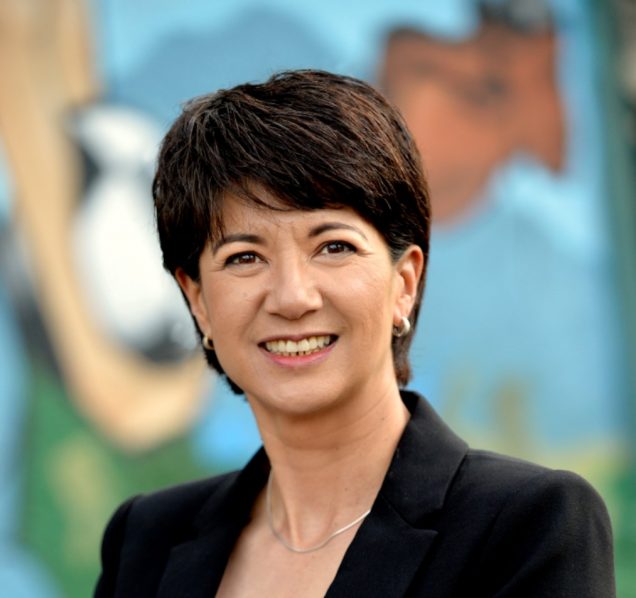‘I encourage Fil-Cans to run for public office’
‘I encourage Fil-Cans to run for public office’

MABLE ELMORE
Interview with Mable Elmore, Member of Legislative Assembly, B.C.
By Mila Astorga-Garcia
The Philippine Reporter
THE PHILIPPINE REPORTER: Considering the unprecedented community mobilization efforts of Filipino-Canadians to campaign that you be given a cabinet position in your Party’s majority-led government, your non-selection to such a position was a big disappointment to many, especially that you have already faithfully served four terms as MLA. Although you have graciously taken on the role of Parliamentary Secretary for Seniors’ Services and Long Term Care, still many in and outside the community believe that that the campaign for Filipino representation in significant political decision-making roles should continue to be pursued. What is your position on this?
MABLE ELMORE: The representation of the Filipino community, and other vulnerable communities, in political decision-making roles in Canada is important. Having a diversity of voices at the table can only mean better policies because then our leadership will reflect the communities they serve. The lived experience these folks bring to the table is valuable and will enrich discussions and decisions made.
As such, diversity in all leadership position in different aspects of society (business, academia, labour, etc) is important as well.
TPR: The community mobilization campaign has gone beyond efforts toward political participation and is now focusing on working for common community interests such as building a community centre, inclusion of Filipino language and heritage classes in the education system, and to involving more Filipino-Canadians in community concerns. How do you see this development as different from community participation in the past?
ME: The Filipino-Canadian community in BC is probably among the most organized. The many organizations we have is a testament to this. And the reason why they have come together ranges from the social to the political. We also have immigrant and migrant groups that focus on advocating for systemic changes in Canada.
I think a difference today is the broad range of groups that have come together to expressly unite around calls addressed to the provincial government. And so among the groups we have supporting these calls are seniors, youth, alumni, hometown and regional organizations across BC. It’s good to see the community is able to unite on issues that are important to all of them as Filipino-Canadians.
TPR: You have been given a crucial responsibility in one of the most critical areas of government service during these COVID crisis – services to seniors and long term care. How does your office intend to deal with this crisis?
ME: Challenges in the long-term care sector were brought to light across the country in the context of Covid-19.
In BC, this challenging situation is a result of how over the last 20 years, the previous government dismantled a system that had all long-term care homes covered in a master agreement that ensured level wages, working conditions and standards of care across the whole sector (ie. private, non-profit and public homes).
The result was a shift towards the privatization and de-regulation of long-term care. This meant increased wage disparities, an uneven standard of care and the lack of enforcement of mandated care levels across the sector.
To address this, our government has committed to hire an additional 7,000 workers in the long-term care sector at living wages. We have also lifted wages (during COVID-19), brought in a single site order with full time hours (previously workers had to work at multiple sites), and also committed to building more beds in the non-profit sector (to move away from residents having to share rooms).
TPR: What is your message to Filipino-Canadians wanting to seriously pursue political careers and run for public office?
ME: I encourage Filipino-Canadians to run for public office. It’s important that our political leaders represent the communities they serve – and the diversity of voices in government is important.
Elected officials all have a different story about how they began. But I think a common thread is that all wanted to serve or contribute to their community in some way.
Also in Canada, we have very strong political party system at the provincial and national levels – so becoming involved with a political party that represents your interests is also something to explore.
Lastly, my message to those considering this is to do it. Your voice matters. Your opinions count.
Comments (0)